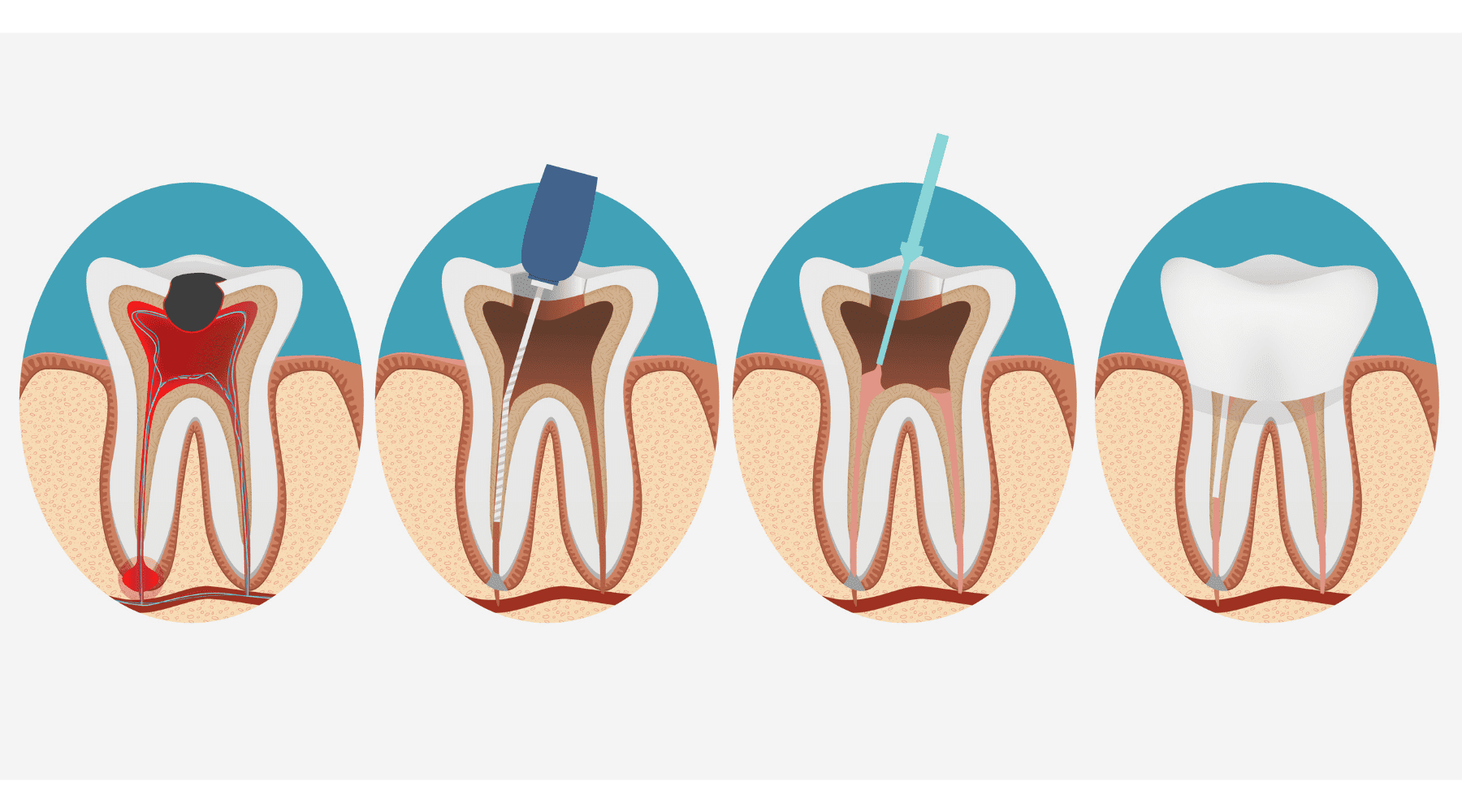Root Canals in Whitby, Ontario | Whitby Endodontics
Your tooth is severely damaged, but your general dentist thinks an endodontic root canal can save it. Let’s learn what to expect during the therapy and how to prepare for your upcoming procedure.
What Is Root Canal Therapy?
Root canal therapy (a root canal) is our specialty at Whitby Endodontics. An endodontic (interior of the tooth) root canal can restore an infected tooth’s natural function and appearance. Contrary to popular belief, it’s typically no more painful than filling a cavity.
Our doctors will suggest root canal therapy if your cavity is deep enough to become infected and spread to the tooth’s nerves which causes toothache pain. Left untreated, a cavity this deep can become an abscess and may lead to bone loss in your jaw and other health problems. Dr. Grossman or Dr. Geisler may also recommend a root canal dental treatment for cracked or damaged teeth, especially if your tooth’s nerves are exposed.
Whitby Endodontics Can Help: A Root Canal Can Keep You Healthy
A root canal is the most common dental procedure here at Whitby Endodontics. Don’t let hearsay frighten you; root canals save your natural tooth.
What is a root canal therapy procedure?
When Dr. Grossman or Dr. Geisler performs root canal therapy, the treatment is simple and often performed in one or two visits. They clear your tooth’s canals of bacteria and infected pulp, then fills and seal them. Read further to learn about the steps for this endodontic procedure:
Preparation of the Area – The tooth is examined, and x-rays are taken. A local anesthesia injection sends the numbing agent into the gums and the tooth’s root. When completely numb, a dental dam is placed around the tooth.
A dental dam is a thin, 6-inch square sheet made from latex or nitrile. It isolates the tooth and keeps it clean and dry during the procedure.
Drilling and Removing the Pulp – Your dentist or endodontist then drill an opening through the crown to access the root. Miniscule instruments clean the pulp from the chamber and canals to the tip of the roots. The channels are disinfected with an antibacterial solution, eliminating bacteria and treating inflammation and infection.
Shaping the Canals – Once cleaned, the canals are shaped to prepare the tooth for the filling material. After shaping, the channels are cleaned a second time.
Filling the Canals – Gutta-percha, a biocompatible material, fills the canals. It is a rubber-like resin placed inside and heated to 40°C to soften and adhere to the root. Your doctor presses the material to fit snugly against the walls.
Filling to the Access Hole – A seal covers the hole with adhesive cement. This filling prevents bacteria from entering the tooth. Your endodontist may place a post inside the tooth if there is insufficient structure to hold the restoration in place. This post is only necessary if the tooth is severely damaged.
Healing and Antibiotics – You are sent home with an antibiotic prescription to kill off the rest of the tooth’s infection. You will also be given post-care instructions on what foods to avoid and expect in the following few days.
It is perfectly normal to experience discomfort after the procedure. Over-the-counter pain medications usually alleviate mild pain. The most important thing is to get adequate rest for at least 24 hours following the procedure. Resting helps to recuperate and heal.
Permanent Restoration/Crown – You will require follow-up care with your general dentist where the tooth will be permanently restored (i.e. filling/core first and then crown if deemed necessary). A dental crown is placed around the treated tooth to add more strength and stability and to protect the tooth. This permanent crown perfectly matches the existing teeth. Once set, the tooth can handle the forces of chewing once again.
As you can see, a root canal treatment is quite simple.
Is a Root Canal Painful?
Today, with the safest and most effective anesthesia, precise tools, and incredible imaging technology, a root canal doesn’t have to be painful. Root canal procedures are not a whole lot different from having a deep filling.
We Can Save Your Tooth With a Root Canal in Whitby, Ontario
Here at Whitby Endodontics, we are highly experienced in root canal therapy. If you have questions or concerns about endodontics, please do not hesitate to ask. Don’t let fear keep you from receiving tooth-saving endodontic treatment. Your best health may depend on it.
If you are concerned about an issue and believe a root canal may be the solution, please call us at (905) 668-6747 or email us.

